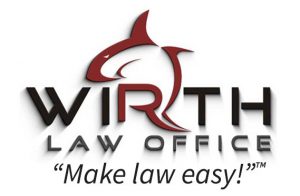If You Are In A Deprived Situation, You Have A Right As A Parent To Request Your Case Be Transferred To Tribal Court
Video Transcribed: When should you transfer a case to tribal court? My name is Ryan Cannonie, I am the Tahlequah family attorney for Wirth Law Office in Cherokee County.
One thing that comes up in deprive cases, in divorce, family law cases, when you’re talking about anything concerning children or the split of a family, is the option that many citizens here have to transfer those proceedings to tribal court, or even start those proceedings in tribal court, when you’re talking about divorce. Why would you go to tribal court versus state court?
Well, there’s a lot of reasons to decide which court system you want to use, but the biggest is that they use different statutes and they’re coming from a different place. They both contain judges that are fair and do justice. They both contain prosecutors, either a district attorney or an attorney general.
They both have similar setups and similar procedures, but both of them have a different take on how cases are handled because their statutes are usually similar, but slightly different.
The biggest thing, especially when you’re talking about deprive case or talking about child custody, in which, let’s say an agency like DHS or ICW Indian Child Welfare for ICW, if they’re involved, is how they apply their own policies.
You’ve seen some videos where I talked about DHS policy, allows certain things and prevent certain other things. ICW policies are usually different than DHS. They may be able to be allowed to do more than DHS or in some situations they may have more restrictions. It’s very fact- specific.
So, knowing the individual facts and what’s happened in your case and in your situation, is really important in a determination, if you want to try to transfer a case to tribal court, or even start a case in tribal court, or if you want to stick with the state court system or even file in state court.
These determinations in these fact situations, are something that most people don’t really know about and attorneys are the ones who are in both of these court systems and see how things go and see what the policies are for ICW and DHS. They’re the ones that can really help guide you on making this decision.
Now, if you are in a deprived situation, for instance, you have a right as a parent to request your case be transferred to tribal court.
Now that doesn’t mean the tribal court is going to accept it. Just like if, in any other court you’re transferring to, if you wanted to transfer to another county, it doesn’t mean that county is going to accept your case.
 But when you’re looking at, let’s say a divorce or even a child custody matter, and you’re thinking about filing, you get to pick, if you want to file state or tribal, if you are a member of a Native-American tribe and able to file in the court system.
But when you’re looking at, let’s say a divorce or even a child custody matter, and you’re thinking about filing, you get to pick, if you want to file state or tribal, if you are a member of a Native-American tribe and able to file in the court system.
Now, also another thing to consider, is not all tribes have an Indian Child Welfare Agency. In the Cherokees, which is primarily where I practice, they have not only tribal courts, but they also have an Indian Child Welfare System.
Now, a lot of your tribes, even your very small tribes are going to have a court system, but that doesn’t mean that they’re going to have all the services offered by, compared to tribes, such as like the Cherokees or the Creeks. Some of the smaller tribes even will join together and use the same court facilities.
That happens up in Northeast Oklahoma, far Northeast Oklahoma, I think around Miami, the several tribes have a core, a building there and a little complex that they are able to do their judiciary out of, even though they don’t have their own at their tribal headquarters.
If you have questions about how, either filing for child custody or filing for divorce, or you’re already in a deprived case, and you’re thinking about transferring to tribal and what are the benefits and what are the pitfalls of this in your case?
Like I said, it’s going to be very fact- specific, so you need to talk to an attorney. If you want to give us a call, we do initial low-cost strategy session.
Or, you can go to Tahlequahattorney.com, use the web form, send us a message, and we’ll have a Tahlequah attorney get back with you and talk to you about your situation.
If we can help, then maybe we can work something out where we end up getting in on your case. Give us a call. We’ll look it over. We’ll see if we can help.








